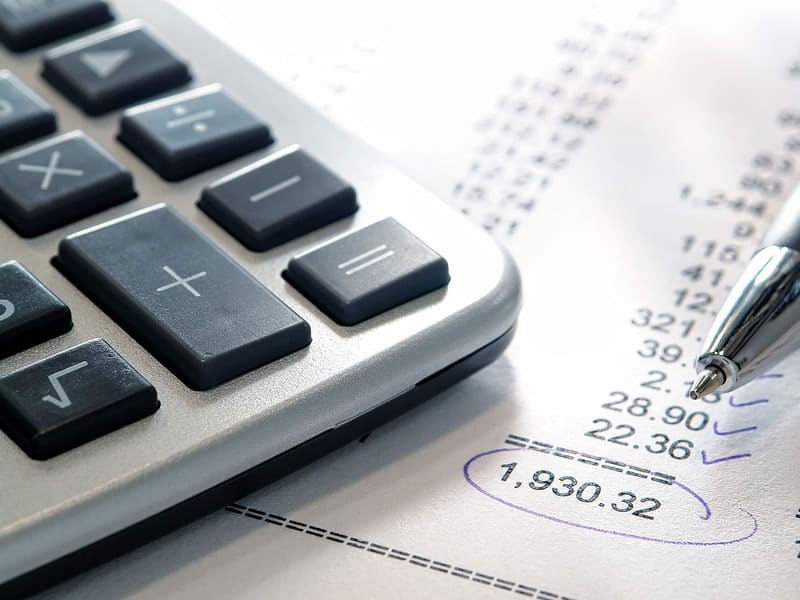Table of content
- How much do the top 1% of real estate agents make?
- What is the typical salary of a real estate agent?
- Real estate agency versus independent agent
- Timeframe for obtaining a real estate license in Australia
- Real estate agent commission
- Average real estate agent commissions in different states
- How to calculate estate agent fees
- Flexible real estate agent fees
- How many houses does a real estate agent sell per year in Australia?
- How much do real estate agents earn from affiliate programs?
In this discussion, we aim to address a pressing inquiry: what is the income of real estate agents? It’s crucial to recognize that real estate agent earnings have no fixed limit. The amount earned by successful agents varies greatly. Although some agents may have a basic salary, they also receive supplementary bonuses and commissions, which can lead to substantial income in certain situations. Moreover, factors such as location and experience play a significant role in determining an agent’s earnings. To delve deeper into these various factors, continue reading.

How much do the top 1% of real estate agents make?
The criteria for top producers can vary among real estate offices, but typically, a real estate agent would need to sell at least one home per month to qualify for this status. Starting out, top producers earn an average of $112,610 per year, as reported by the Bureau of Labor Statistics (BLS). However, the income potential for exceptional performers is much higher, with some earning $500,000 per year or even more. These mega-stars in the industry have demonstrated remarkable sales achievements and can command significant income levels.
Top-producing real estate agents tend to earn substantially more than the average agent. While the standards for top producers can vary among real estate offices, it is generally expected that a top producer would need to successfully sell at least one home per month to achieve this status.
One way to gauge the earnings of top producers, who are often listing agents, is by examining their dollar volume. By looking at the amount of real estate they sell per year, such as $50 million, it is reasonable to estimate that they earn at least a million dollars in commissions, if not considerably more. This provides an indication of the significant income potential for top producers in the industry.

What is the typical salary of a real estate agent?
According to Talent.com, the average annual base salary for real estate agents in Australia is $75,000, equivalent to $38.46 per hour. This figure surpasses the country’s minimum wage of $21.38 per hour. Entry-level positions usually start at $55,125, while more experienced agents can earn up to $92,250. A real estate agent’s salary is influenced by various factors, including their experience, the agency they work for, their location, whether they specialize in residential or commercial properties, and their negotiation skills.
What is a real estate agent’s salary in the first year of work?
In Australia, a first-year real estate agent’s earnings can vary based on factors such as location, agency size, and individual performance. As of 2025, entry-level positions typically start at around $80,000 per year. This marks an increase from previous years; in 2023, entry-level salaries were approximately $75,000 annually, and in 2020, they were about $70,000 per year. Monthly earnings can fluctuate due to the commission-based nature of the role, with agents potentially earning more in months with successful sales and less during slower periods.
How much do real estate agents earn per sale?
Real estate agents in Australia earn commissions based on the property’s sale price. For example, with an average commission rate of 2.5%, selling a property valued at $800,000 would yield a commission of $20,000. This commission is typically split between the agency and the agent. Real Estate Agents typically receive one-third of the commission earned from a specific sale, while the remaining balance goes to their real estate agency. Thus, in the given example, the final income amount will be about $6,650.
When analyzing fee data, it becomes evident that commission rates vary significantly across states, territories, and even within towns and cities within the same state. One notable distinction lies in the commission fees between metropolitan cities and regional areas. Generally, commission rates tend to be lower in metropolitan areas due to heightened competition.
This discrepancy can be attributed to the classic interplay of supply and demand. With a larger number of properties being listed in cities and an increased number of real estate agents vying to secure your business as the selling agent, agents find themselves compelled to lower their commission rates to remain competitive. Conversely, real estate agents in rural and regional areas face less competition, allowing them to set higher commissions that they deem fair and reflective of prevailing market conditions.
For instance, as mentioned earlier, the average commission in Hobart stands at 2.67% in a city with a population of 250,000. In contrast, the average commission in Sydney is 1.87% in a city with a population of five million. Consequently, real estate agents in Hobart can afford to charge higher commission fees due to the comparatively lower level of competition prevalent in the Sydney property market.
How much do real estate agents earn in different states of Australia?
Earnings for real estate agents vary across Australian states due to differing commission rates and property values. The table below provides a comparison:
| State | Average Commission Rate | Example Property Price | Agent’s Commission (2.5%) |
|---|---|---|---|
| New South Wales | 2.1% | $1,000,000 | $25,000 |
| Victoria | 2.0% | $900,000 | $22,500 |
| Queensland | 2.5% | $700,000 | $17,500 |
| South Australia | 2.75% | $600,000 | $16,500 |
| Western Australia | 2.45% | $650,000 | $15,925 |

Real estate agency versus independent agent
Choosing to work for a real estate agency comes with several advantages, including the bonuses and benefits mentioned earlier. However, one drawback is that you need to share a portion of your commission with the agency.
On the other hand, if you opt to work independently, there are initial expenses to consider, such as licensing, insurance, and setting up your office. However, being a self-employed real estate agent also provides tax benefits and deductions. These deductions can include travel expenses and marketing costs, whether you choose to work from home or rent an office space.
You can also read: How to Become a Real Estate Agent

Timeframe for obtaining a real estate license in Australia
The duration required to acquire a real estate license in Australia can vary depending on the level of experience and the specific licensing requirements. Here is a general timeframe for different categories of aspiring real estate agents:
Entry-level/beginners: On average, it typically takes around 1-2 months to obtain a real estate license as an entry-level agent. This duration includes completing the necessary training courses and fulfilling the basic licensing requirements.
Experienced agents or those seeking full licensing: For individuals with prior experience in the real estate industry or those aiming to obtain a full license, the timeframe can range from 1-4 months on average. This duration accounts for the completion of additional training or educational requirements, as well as any experience prerequisites set by the licensing authority.
It’s important to note that these timeframes are approximate and can vary depending on factors such as individual progress, course availability, and specific licensing requirements in different states or territories across Australia.
The Mutual Recognition process enables licensed individuals to obtain equivalent qualifications that allow them to work in a different state. If you are considering moving interstate and wish to continue working in the real estate industry, you can explore the specific process for mutual recognition in the desired state by selecting it below. This will provide you with information on how to transfer and validate your real estate license in that particular state.

Real estate agent commission
Real estate agents receive commission fees in addition to their salary, and there are three primary types of commission structures: fixed rate, percentage commission, and tiered commission. These structures incentivize agents to secure higher sale prices, as a higher price leads to a larger commission. This arrangement benefits both the agent and the seller, creating a win-win situation.
- Fixed commission. In a fixed commission structure, you pay a predetermined amount once your property is sold, regardless of the final sale price. This approach has its advantages and disadvantages. On the positive side, knowing the exact commission fee upfront can provide peace of mind. However, some view fixed-fee agents as more focused on selling quickly, even if it means accepting a lower sale price. Compared to agents with tiered-based commissions, there can be a sense of urgency as they aim to sell a certain number of homes to reach their income target. Nevertheless, for some sellers, the benefits outweigh the drawbacks.
- Fixed percentage commission. Similar to fixed commission fees, this structure involves a fixed percentage fee instead of a specific dollar amount. Regardless of the final sale price, you pay the same percentage. It offers the best of both worlds for both the seller and the agent, as they receive a higher commission if the property sells for a higher price.
- Tiered commission. Usually, it’s about bonuses within the real estate industry to secure higher sale prices. As mentioned, the commission earnings increase with the price of the property. This approach is increasingly favored by sellers seeking optimal results.
It’s crucial to bear in mind that with a tiered commission structure, it might take more time for the house to sell as the agent could be waiting for the highest possible price. This type of commission arrangement is generally more suitable for properties with higher values.

What commission do real estate agents make in Australia?
The commission differ from 1.5% to 4% size for real estate agents in Australia depends on several factors:
- Location: Commission rates vary by state and region.
- Property Value: Higher-value properties may have lower commission percentages.
- Market Competition: Areas with more agents may see lower commission rates due to competition.
- Agency Policies: Different agencies have varying commission structures and splits.
- Experience and Performance: Experienced agents or those with strong sales records may negotiate higher commission splits.
Average real estate agent commissions in different states
In Australia, average commission rates typically range from 1.5% to 4%. However, it’s essential to note that commission rates vary across different states, cities, and suburbs. Here’s a brief overview of the current average agent commissions, expressed as both a percentage and dollar amount, for each state and territory:
| Australian Capital Territory | The average commission is 2.19% or $10,850. |
| New South Wales | The average commission is 2.01% or $10,050, which is comparatively lower than the national average. In Sydney, the average commission is even lower at 1.87%, reflecting high demand in the market. |
| Queensland | Queensland has the second-highest commission rates, with an average of 2.56% or $12,800. In Brisbane, the average is very close to 2.52%. |
| South Australia | South Australia boasts the lowest commission rate, with an average of 1.94% or $9,700. In Adelaide, the average is even better at 1.90%. |
| Tasmania | Tasmania has the highest commission rates, with an average of 2.71% or $13,550. The average commission rate in Hobart is 2.67%. |
| Victoria | The average commission rate in Victoria is 2% or $10,000. However, in Melbourne, the average is slightly lower at 1.93%, reflecting increased competition in the market. |
| Northern Territory | The average commission is 2.49% or $12,450. Similarly, in Darwin, the average rate stands at 2.49% |
| Western Australia | The average commission rate sits in the middle at 2.32% or $11,600. In Perth, the average is 2.28%. |
It’s important to consider these average commission rates when engaging with real estate agents, as they can vary significantly based on location.

How to calculate estate agent fees
The calculation is straightforward since there is a predetermined amount. However, for tiered or percentage commissions, you need to multiply the commission percentage by the final sale price.
When determining the amount you owe a real estate agency when selling your property, there are additional fees to consider. One such fee is advertising and marketing expenses, which typically incur additional costs as they vary based on your agent’s marketing strategy.
This encompasses a range of online and offline marketing methods, such as online property listings, local newspaper advertisements, For Sale signs, social media marketing, and professional photography. Marketing fees can differ significantly based on property value, type, and location. Generally, you can expect to pay between $2,500 and $12,500 or 0.5% to 1% of the property value.
Additional expenses to keep in mind include the auctioneer fee if you decide to proceed with an auction as your selling method. This fee encompasses the expertise and services provided by a professional auctioneer on the day of the auction, typically amounting to approximately $600. Furthermore, your agent might suggest engaging a professional home stager to enhance the presentation of your property for activities such as a professional photo shoot, auction day, or open house inspections. The cost of hiring a home stager can vary between $2,000 and $8,000.
There are also other fees that sellers should be aware of when their property sells, including conveyancing fees (approximately $700 to $1,300), moving costs, capital gains tax, and a mortgage discharge fee. These additional expenses should be taken into account when calculating the overall costs associated with selling a property.

Flexible real estate agent fees
Real estate agent fees in Australia are deregulated, allowing each agent to set their own commission rates. However, this deregulation also gives you the opportunity to negotiate the commission fee. If you’re interested in negotiating, here are some helpful tips:
- Conduct research: Gather information about the average commissions charged by agents in your area. This knowledge will provide a basis for negotiation.
- Compare local agent fees: Utilize tools like LocalAgentFinder’s free online comparison tool to compare the fees of different agents in your locality.
- Highlight competition: Let the agent know that they are competing with other agents. By expressing this, they may be more willing to match or adjust their fees in order to secure your business.
- Discuss tiered commission structure: If you prefer a tiered commission structure, inquire if the agent offers this option. This approach provides an incentive for the agent to strive for a higher sale price.
- Request a written breakdown: Ask the agent to provide a written breakdown of their commission and fee structure. This will ensure clarity regarding the specifics of what you are paying for.
Additionally, it’s worth noting that when negotiating fees, higher-value homes often have more room for negotiating a lower commission.
How many houses does a real estate agent sell per year in Australia?
The number of properties a real estate agent sells annually in Australia varies based on experience and market conditions. Agents with 3-5 years of experience typically handle 20-30 sales per year, while those in their first year may complete 5-10 sales. The 2024-2025 interest rate hikes have led to a slowdown in the property market, reducing the number of transactions and potentially impacting agents’ sales volumes.
How much do real estate agents earn from affiliate programs?
Earnings from affiliate programs are not a standard component of a real estate agent’s income in Australia. Some agents may receive referral fees from related services like mortgage brokers or moving companies, but these are typically modest and vary widely. Agents primarily rely on commissions from property sales as their main source of income.



'How much do Real Estate Agents in Australia earn?' have no comments
Be the first to comment this post!